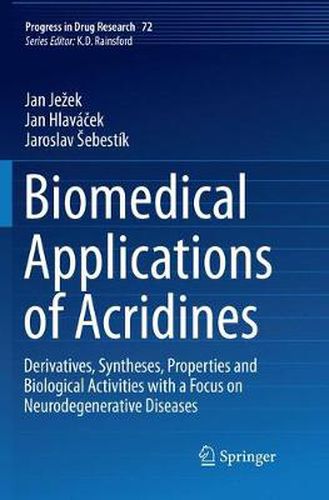Readings Newsletter
Become a Readings Member to make your shopping experience even easier.
Sign in or sign up for free!
You’re not far away from qualifying for FREE standard shipping within Australia
You’ve qualified for FREE standard shipping within Australia
The cart is loading…






This book describes applications of acridines for the treatment of various neurodegenerative diseases, such as Alzheimer’s disease, Parkinson’s disease, and various prion diseases, and discusses the potential of acridines in neuro-regenerative medicine. Using modern data-mining software, it presents structures of acridines with nucleic acids and proteins and compares them with the native structures. Furthermore, the book presents modern methods of acridine synthesis, comparing them with the most useful conventional methods. Acridines interact with both nucleic acids and proteins, and due to their direct interactions with various enzymes, they can be suitable for the treatment of neurodegenerative diseases, inflammation, immunological disorders, and protozoal diseases. The characteristic spectral properties of acridines can be employed in labeling proteins, nucleic acids, lipids, and even cells and their compartments. Moreover, they can be applied in photodynamic therapy.
$9.00 standard shipping within Australia
FREE standard shipping within Australia for orders over $100.00
Express & International shipping calculated at checkout
This book describes applications of acridines for the treatment of various neurodegenerative diseases, such as Alzheimer’s disease, Parkinson’s disease, and various prion diseases, and discusses the potential of acridines in neuro-regenerative medicine. Using modern data-mining software, it presents structures of acridines with nucleic acids and proteins and compares them with the native structures. Furthermore, the book presents modern methods of acridine synthesis, comparing them with the most useful conventional methods. Acridines interact with both nucleic acids and proteins, and due to their direct interactions with various enzymes, they can be suitable for the treatment of neurodegenerative diseases, inflammation, immunological disorders, and protozoal diseases. The characteristic spectral properties of acridines can be employed in labeling proteins, nucleic acids, lipids, and even cells and their compartments. Moreover, they can be applied in photodynamic therapy.